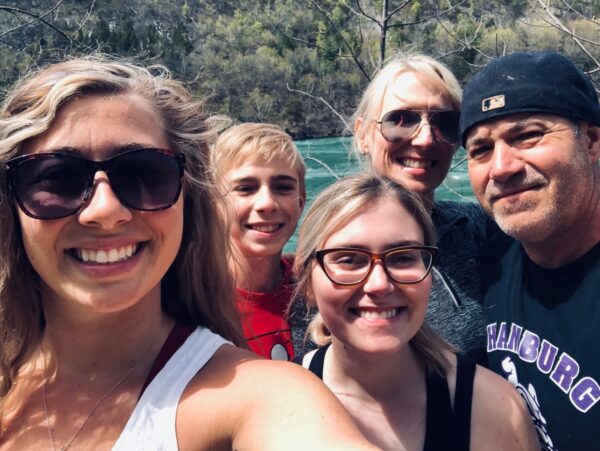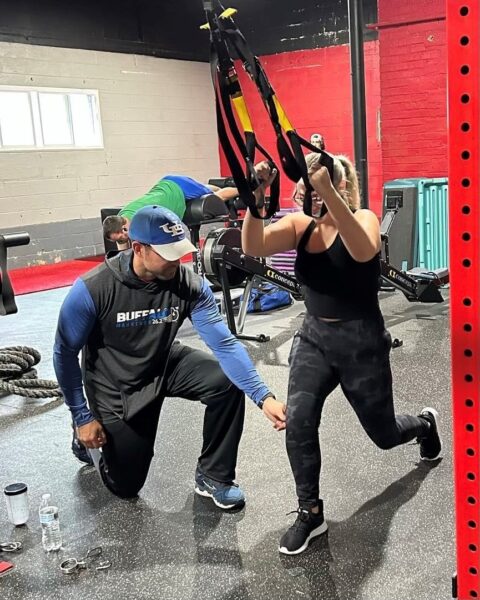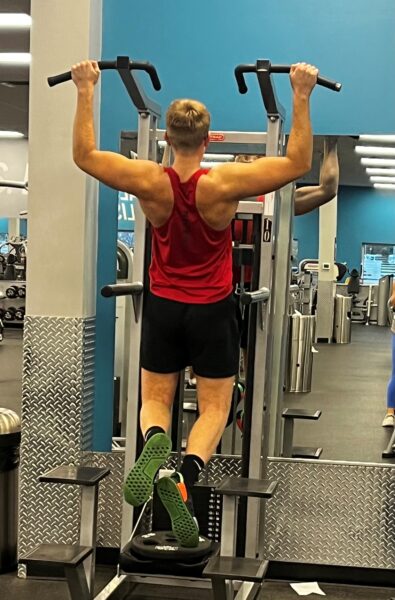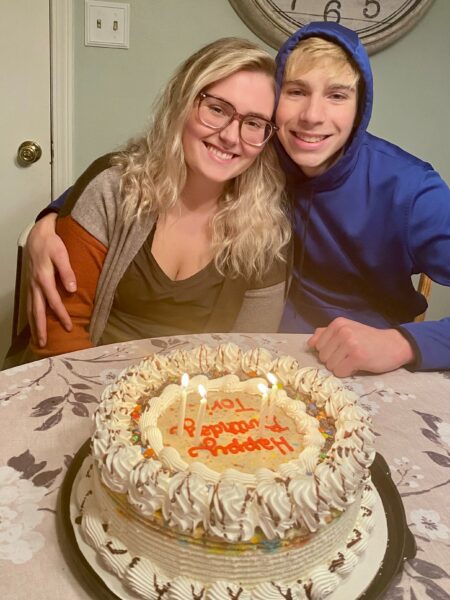Marianne Paluch knew something was off with her daughter and son when they were young. She noticed her daughter Tori had stiff muscles, would complain of leg pain at night and had other mysterious symptoms. At first, Marianne and Tori’s doctors chalked her symptoms up to growing pains, but it was when her teacher mentioned that her performance was declining that Marianne investigated further. 
“We did some testing in school, and they noticed she had tracking issues with her vision,” Marianne said. “That is how our journey started. We went to a neurologist, because she started getting headaches and felt dizzy.”
During this time Tori also started to experience balance issues, causing her to trip and fall easily. When she was 14, Tori had her first seizure. This was followed by many hospital visits, more seizures and confusion about a diagnosis. Marianne and her husband felt discouraged over the lack of diagnosis.
“I decided to take matters into my own hands,” said Marianne. “Through all this, I was researching, trying to figure out what was wrong. And my sister’s a nurse too. So, she was researching, and stuff did come up about mitochondrial disease.”
Upstate New York residents, Marianne and Steve decided to have Tori evaluated through Boston Children’s virtual program. The doctor in charge asked her to come in for an in-person evaluation where he thought it was mitochondrial disease and recommended the family do genetic testing.
The test results showed that Tori and her brother Dawson had three gene mutation for POLG, while their sister was a carrier, and experienced no symptoms.
What is POLG?
POLG is a genetic mitochondrial disorder that affects how the body’s cells use energy. Think of it as your body’s battery in a constant state of depletion, never able to be fully charged.
Because POLG affects how the body’s cells use energy, this can cause organ dysfunction or failure.
Symptoms of POLG can vary from mild to severe and can present differently among family members with the same mutation. Symptoms can include:
- Weak or paralyzed eye muscles
- Liver failure
- Muscle weakness
- Epilepsy
POLG can be difficult to diagnose because there are many symptoms, and it can affect several body systems.
Using movement to help
For most mitochondrial patients, exercise or even simple movement can help reduce disease symptoms and improve day-to-day functioning.
After gaining some weight due to her medications, Tori wanted to get in shape. Her dad, Steve, had a friend who owned a gym and offered to train her for free, which started Tori’s weightlifting journey.
The whole family participates in some form of weightlifting. Dawson’s workouts focus on hypertrophy, or quickly building muscle, while Tori does workouts that help to maintain and improve balance and strengthen her core.
“It definitely helps me feel better,” Dawson said of his workout routine, which he does 5 days a week.
“I notice that when I come home from the gym, I have a lot more energy,” said Tori.
Dawson also interned at one of the gyms the Paluch family frequents and studied sports conditioning and exercise science in school.
“We’ve met so many amazing people through this journey, doctors, nurses, trainers many who have become like family,” said Marianne.
The Paluch family’s journey to Akron Children’s
While Tori experiences POLG symptoms like vision issues, muscle weakness and seizures, Dawson does not.
“Dawson’s symptoms are much milder,” said Marianne. “With him, it’s always been more learning issues. He has progressed with neuropathy and balance and coordination issues.” 
Following diagnosis, the Paluch family sought help from Dr. Bruce Cohen at Akron Children’s.
“Dr. Bianca Weinstock-Guttman, who is one of the kids’ neurologists here in Buffalo recommended Dr. Cohen, because her husband Dr. Weinstock (who was Tori’s epilepsy doctor) had studied under him at Cleveland Clinic. So, we went to Akron Children’s, and he’s been the best thing that’s happened to us,” said Tori’s dad Steve. “I think the clinic is wonderful. They are so welcoming, and they’re knowledgeable, they answer all our questions, and they really care. I call Dr. Cohen “Uncle Brucey,” and I give him a big hug every time I see him.”
Under Dr. Cohen’s care Tori has participated in four clinical trials. The most current trial she’s involved with is testing a drug that could affect her energy level and her muscle weakness.
“I never really thought about doing a trial to help myself,” said Tori. “I always thought of it as doing it to help other people. Because my brother has it, I like to be able to help him, too. Dawson is my best friend.”
“If it wasn’t for these warriors out there trying new drugs in clinical trials, we wouldn’t have any drugs,” added Marianne.
What’s next?
An animal lover, Tori hopes to help care for animals in the future. Dawson wants to continue his fitness goals. And the family wants to keep raising awareness of POLG and mitochondrial diseases.
They want others with mitochondrial diseases to know they’re not alone, and they hope people will be more compassionate toward those whose illnesses aren’t very visible.
“Don’t judge people. You don’t know what they have or what’s going on,” said Steve. “I try to get the awareness level up that there are other diseases a lot of these poor kids are suffering from that nobody knows about.”
“It just gives us a lot more compassion and patience for other people in the world. You don’t know what they’re going through. I want people to know more about mitochondrial disease. What it really involves. You know, there’s so many invisible illnesses out there, and people are so quick to judge,” said Marianne.
She continued: “It’s a very scary diagnosis at any level, because you don’t know how it’s going to progress. It’s tough seeing your children suffer and go through such difficult, tough symptoms, knowing there is no treatment or cure to help them. Sometimes your main focus is on your kids, because they are the ones going through it. But you really do go through it as a family. Husbands and wives need to stay in communication with one another, discuss their feelings and their fears with each other. It can be a very trying/dark time for a marriage, so try and keep some focus on yourselves too. Get counseling if needed, just to have someone to help you navigate if it becomes too overwhelming. Most importantly, find a great team of doctors that listen, help, understand and do whatever they can for you. Always be your child’s advocate, and search to you find a team that feels like home, like we found with Dr. Cohen, Hillary and the Akron Children’s team.”
Looking for mitochondrial disease treatment? Contact our mitochondrial center.










